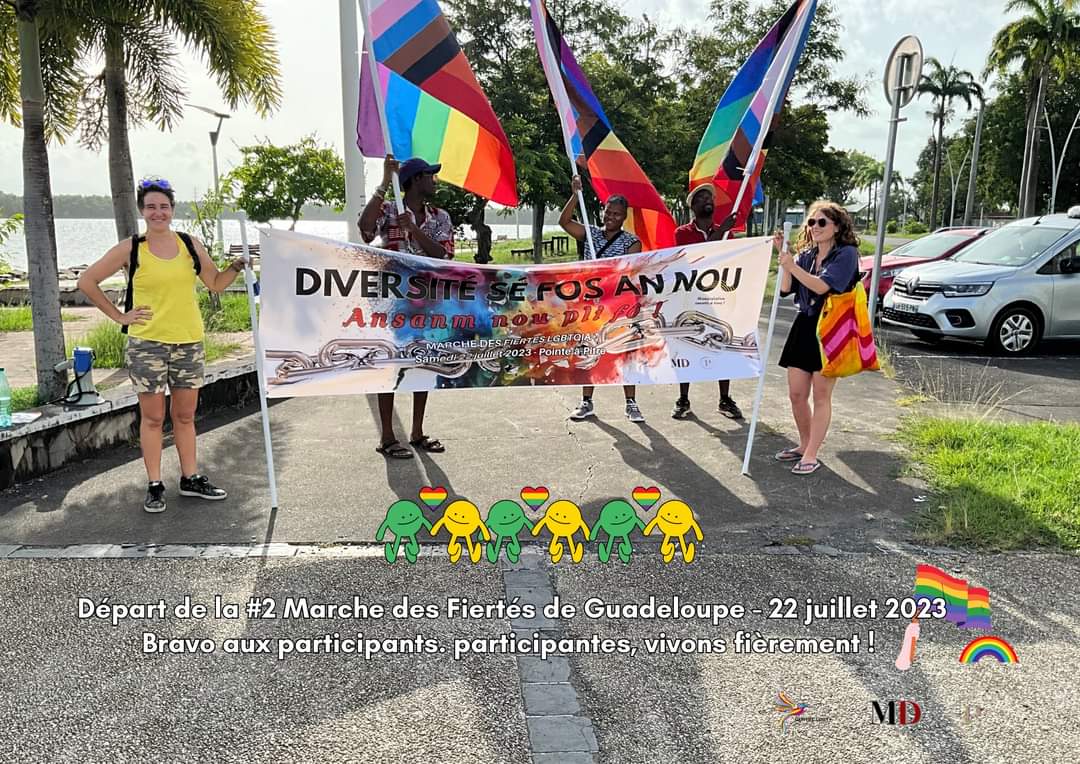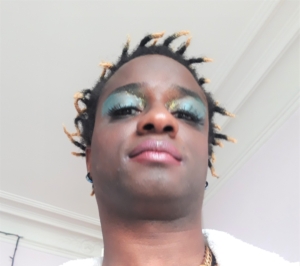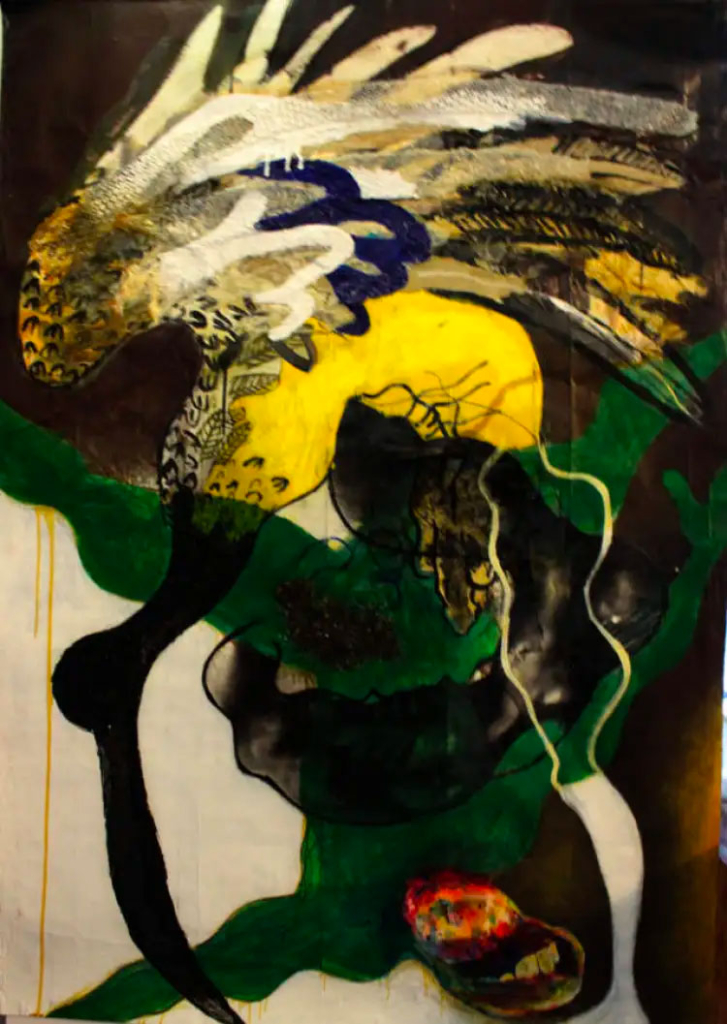Portrait : Dominique Pouzol, Guadeloupean artist fighting LGBTphobia
Moïse Manoël-Florisse, is an African-Caribbean online journalist keeping an eye…
‘It’s not by going into exile that we’ll change the mentalities of our parents, relatives, neighbors or peers.’
Artist Dominique Pouzol was one of the six people who took part in last Saturday’s Guadeloupe Pride March.
Erasing 76 Crimes gave the floor to Dominique, a native Guadeloupean artist, to find out how his commitment to LGBT+ rights affects his art and vice versa.
Dominique Pouzol: I’m a 42-year-old gay visual artist living between Guadeloupe and Paris. I was born in Guadeloupe and did all my schooling here, notably in Basse-Terre at the Lycée Gerville-Réache, before going on to study at the Institut Régional d’Arts Visuels de la Martinique.

Later, I moved to France, thinking I could live my sexual and emotional life more freely there. This enabled me to continue my studies in visual arts at the University of Paris 8 Vincennes Saint-Denis. In France, however, we face other difficulties and discrimination, and the fight for freedom and emancipation never stops.
In the end, I came to the conclusion that, for things to change, you have to get out of your comfort zone. This means pursuing a local, open-faced fight against discrimination. And it’s not by going into exile under other skies that we’ll change the mentalities of our parents, relatives, neighbors or peers.
The goal in life is to be able to feel free at home. At least, that’s how I see things, and that’s what led me to join Lydie’s Pride march to demand our rights. [LGBT+ activist Lydie Siwsanker of Guadeloupe founded the three local organizations that sponsored Saturday’s march.]
The six participants marched through the streets of Pointe-à-Pitre at 4:00 pm on Saturday afternoon, shouting “Ansanm nou pli fò” (“Stronger Together” in French) and “Divèsité sé fòs pou Gwadloup” (“Diversity is a chance for Guadeloupe” in French).
76crimes: You’re demonstrating to demand what rights?

Dominique Pouzol: The number of participants leads me to believe that many people in Guadeloupe lead a double life. On the other hand, politically speaking, I regret to say that many people are not yet ready to live their citizenship with their faces uncovered.
That’s why most of the participants in the pride march don’t live here all year round. Talking amongst ourselves, we’ve noticed that four of us were just passing through, and it’s really the social networks that have brought us together around this event.
In reality, in Guadeloupe, we’re fighting for a right to visibility that’s far from won, and which is nonetheless the essential condition for a genuine right to indifference, in the face of prevailing heteronormativity, so that people are no longer surprised or astonished if someone tells them, “I’m a man and I have a male partner”.
Too often, we still have to convince people, paradoxically, that equal rights do not threaten the rights of those who have them, while rights are achievements that are never totally definitive.

For example, 10 years ago, Victorin Lurel, then Minister for Overseas France in [French President François Hollande’s] government, was not in favor of marriage for all. [When France legalized same-sex marriage in 2013, that change also applied to its overseas territories.] And even today, I don’t have the impression that this law has entered the mainstream. What’s more, the local political class is not taking up these issues in favor of equality, and this is detrimental to protests, as we saw last Saturday.
On the other hand, for LGBT+ people, marriage is a matter of protection, in the event of inheritance or succession for the widowed spouse.
What’s more, I’ve never seriously considered getting married in my life, but today I feel that the law opens the door to a choice and widens the field of possibilities for people like me who didn’t have one before.
76crimes: Does the fight against homophobia run through your artistic work?
Dominique Pouzol: It’s a subject I try to deal with through the figure of the monster, which is a metaphor for the way I’ve perceived myself for a long time, through the eyes of others, because I’m black and homosexual. In any case, through art, I have to deal politically with the oppressions I experience in this heteronormed world, because I have plenty of monsters that I’d like to share with my audience, like so many painful subjects that run through West Indian society today.




